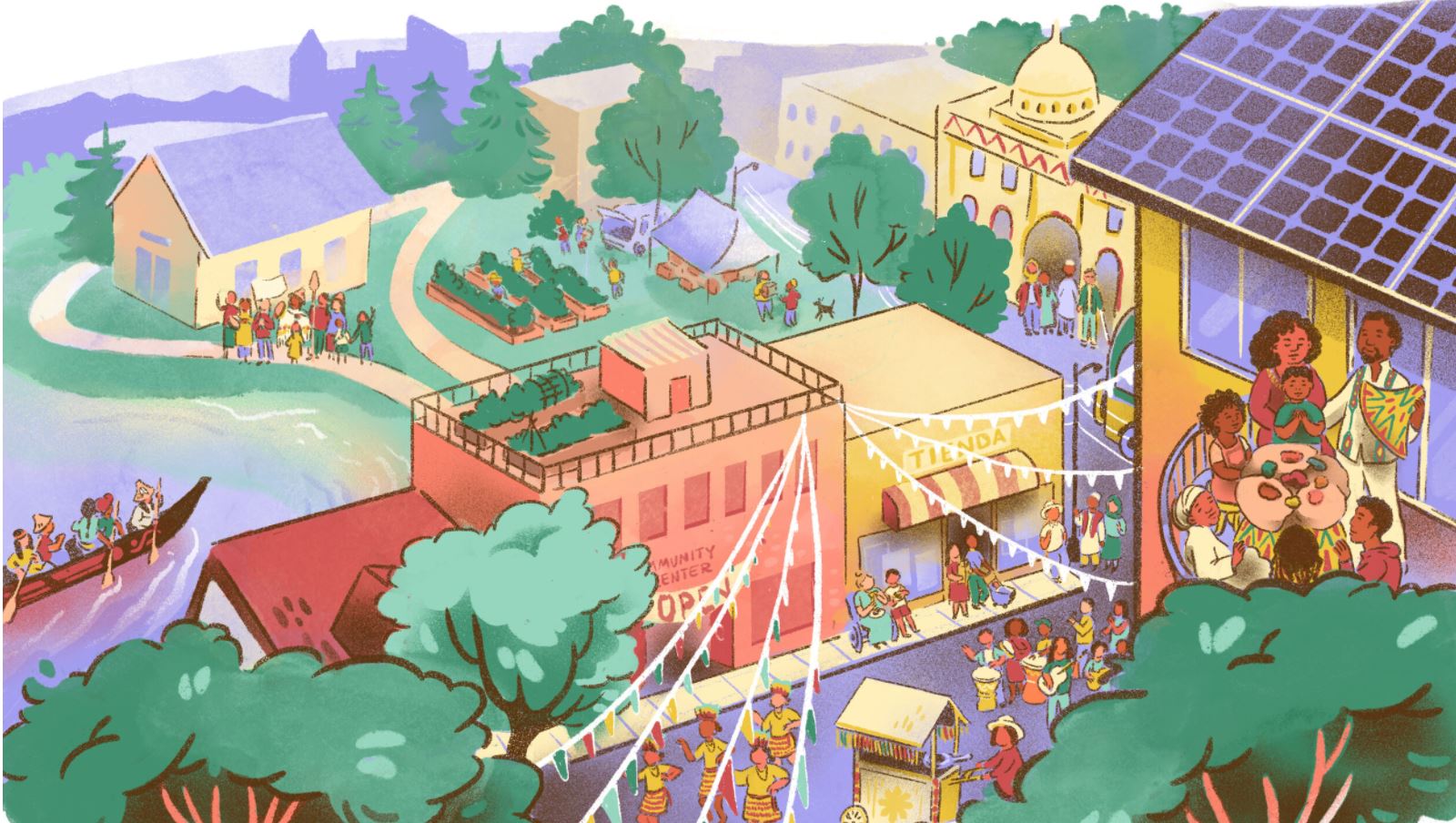news release originally published on Mar 16, 2022
King County Council adopts community-proposed motion (8-1) to replicate the successful Equitable Development Initiative in Seattle for the benefit of communities across the region
Over the next year, the County will sponsor a community-led workgroup to co-design, with the Executive’s office, a County Equitable Development Initiative (EDI). Like Seattle’s program with the same name, the County EDI will provide development support and resources to communities impacted by a wave of gentrification and displacement that has spread to nearly all corners of the County.
Once created, the County EDI will help local organizations buy land and develop their own affordable housing, cultural centers, and places for social services as well as supporting small business spaces. Such anchors increase resilience and stability for low-income and marginalized communities.
The 40+ member BIPOC-led Coalition that proposed the program came together last spring, alarmed by skyrocketing land prices and real estate speculation in their neighborhoods. Passing a county-wide equitable development initiative is the first step of the coalition’s long-term vision for Community Stewardship of Land. The coalition asserts that “only with our homes and neighborhoods protected from real estate speculation can we withstand the global forces that have dispossessed BIPOC communities of their places for generations.”
The Coalition worked closely with Councilmembers to create the motion and rallied community members to demand action. After months of organizing, the coalition cheered passage of the motion by County Council yesterday. Councilmembers Dembowski, Zahilay and Kohl Welles sponsored the motion and all but one Councilmember supported it in the final vote.
“Displacement is not something that happens overnight. It happens a little bit at a time every day until it’s too late,” said Maria Ramirez, chair of the Duwamish Valley Affordable Housing Coalition (DVAHC). “But when development is led by the community, solutions will emerge that will disrupt the cycle of displacement of BIPOC communities that have long called King County their home.”
“As a resident of an urban unincorporated area, we too often feel the burden of being passed up, underinvested in and not eligible for funding sources that other areas benefit from,“ said Jeannie Williams, Co-President, West Hill Community Association. “A King County EDI will help us ward off displacement and become the developers in our own community, by building affordable housing, cultural, child care, recreation, and education spaces.”
“Nothing says progressive more than community owned and controlled land for Black, Indigenous, People of Color communities,” stated Gregory Davis, Managing Strategist, Rainier Beach Action Coalition. “For projects like our community-led Food Innovation District here in Rainier Beach, this is how government can be part of the solution.”
“My organization, African Leaders Health Board, works to address health inequity to create a healthier African immigrant and refugee community in the County,” said Board Member Kwadwo Oware. “Building permanent cultural anchors in our communities helps ward off displacement which is vital to health equity and achieving a healthier community.”

